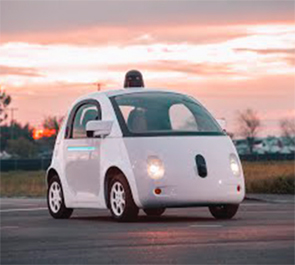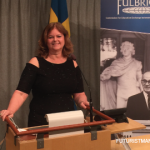 ROME, Italy—The European League Against Rheumatism (EULAR) annual congress (EULAR 2015) was a much-anticipated event, with more than 14,000 delegates attending from far and wide. The Health Professional Standing Committee was particularly delighted to have planned a program that provided the latest in research terms but also an eclectic mix of valuable topics for health professionals. These included health economics and innovative approaches to healthcare, including approaching co-morbidity management in new ways using the expertise of health professionals.
ROME, Italy—The European League Against Rheumatism (EULAR) annual congress (EULAR 2015) was a much-anticipated event, with more than 14,000 delegates attending from far and wide. The Health Professional Standing Committee was particularly delighted to have planned a program that provided the latest in research terms but also an eclectic mix of valuable topics for health professionals. These included health economics and innovative approaches to healthcare, including approaching co-morbidity management in new ways using the expertise of health professionals.
One particularly interesting session was titled, Innovations in Healthcare—Can You Google It? Speakers came from the U.K., U.S. and Australia, and included Samuel Dickinson from Google UK, Maura Iversen, PT, MPH, DPT, SD, from Northeastern University and senior lecturer at Harvard Medical School, Boston, and last, but not least, Caroline Brand, MBBS, FRACP, BA, MPH, a rheumatologist from Melbourne Health and University of Melbourne and Monash University.
The 90-minute session aimed to inspire an interest in exploring new ways of thinking about change and innovation. Samuel Dickinson, Google’s lead innovator, kicked off the session. Samuel excited and enthused the audience, demonstrating that innovations outside the traditional healthcare arena can be just as relevant to healthcare innovations, given the right open and expansive approach to exploring the problem. Samuel encouraged us to get “uncomfortably excited” to step out of our comfort zone and look in new ways at how we can improve care. Samuel showed how the Google team approaches problems by exploring possibilities in an expansive way, looking at all possibilities and honing that down to analysis and judgment. Smiling and relaxed, the audience enjoyed watching a video of the fun time individuals with visual or functional impairments experienced as they were liberated from their disabilities using the Google self-driving car.
This led beautifully into Professor Iversen’s presentation, showing how she had achieved new approaches in educating students while also improving health outcomes. A common synergy between the two presentations was that Professor Iversen had used Google Glass and other medical simulation models in medical education to improve the transfer of information in a safe, effective and rewarding way. A wealth of information was shared on virtual reality simulation approaches used in such areas as airway management.
Perhaps more vitally, areas also of great interest were the areas of mobile apps and games to enhance physical activity in communities to maintain physical function or rehabilitate.
The benefits of new approaches to delivering healthcare also included telemedicine and assistive technology, with much food for thought for health professionals, including the evidence of active assistance technology, with four out of six randomized controlled trials showing positive results in behavioral change, and five being positive for acceptability. Yet to date, we remain slow at exploring such approaches in healthcare.
The final presentation, by Dr. Brand, highlighted the fact that 30–45% of patients with chronic conditions were not receiving care according to scientific evidence.
Susan Oliver, RN, FRCN, MSc, OBE, is past chair of the EULAR Health Professional Standing Committee and a nurse consultant to the National Health Service, helping identify innovative and cost-effective approaches to healthcare within the field of rheumatology. A member of the British Society for Rheumatology International Strategy Group and a Fellow of the Royal College of Nursing, she is also a nurse prescriber.

